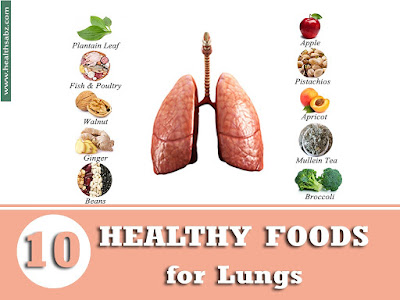The 5 Best Ways to Keep Your Lungs Healthy

Lungs are a critical component of the respiratory system; a group of organs and tissues that work together to help you breathe. The main role of the respiratory system is to move fresh air and get waste gasses out of the body. They take in oxygen when you inhale and force out carbon dioxide when you exhale, and play an integral role in maintaining the body’s overall health. Five of the best ways to ensure that your lungs are operating at their optimum level now and into the future:
2. Get Regular Exercise Regular physical activity and exercise improves quality of life, and is important for maintaining a healthy heart, for maintaining a healthy weight and for reducing the risk of diabetes. Exercise also helps to keep your lungs healthy.
3. Be Aware of the Air Quality Around You The air that people breathe on a day to day basis has a dramatic influence on the function of their lungs. Research has shown that smog can damage the lining of the lungs and irritate and inflame pulmonary membranes. Air pollution is not just an outdoor issue however. Fireplaces, wood stoves, fumes, mould, pet dander and even particular types of air fresheners and candles can also cause problems with lung function.
4. Watch What You Eat Nutrition is an important component in overall health, but there is a significant body of evidence to suggest that particular foods are better than others for developing strong, robust lung function. Antioxidant-rich foods including broccoli, cauliflower, cabbage, bok choi and kale have been shown to be good for lungs as they absorb or attach to free radicals, preventing them from attacking normal, healthy tissue.
5. Maintain your Overall Health Whilst influenza is not the devastating illness that it once was, it can still cause significant health problems, especially for lung function. Cold, dry air can stress the airways, so staying illness-free is an important step in maintaining overall lung health. Immunization is a good way to help ward off the virus that causes the flu, preventing potential problems before they affect the lungs.


































